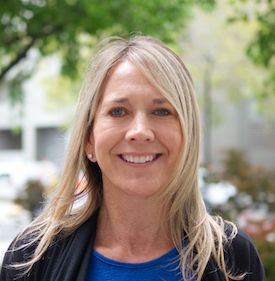Sure, there is a certain degree of ROI that comes from putting dollars behind diversity. For instance, diverse companies are 35 percent more profitable, according to a McKinsey analysis.
But investing in diversity only after raising a Series E or when Black Lives Matter activists are in the streets is not good enough.
We spoke to four leaders at companies that have raised around, or well above, $100M and who believe that a substantial raise or a specific reason isn’t necessary to invest in diversity. They said it’s simply the right thing to do, and that it should be a fundamental goal from a company's founding.
Concrete diversity, equity and inclusion (DEI) efforts can look like hiring candidates from underrepresented groups, performing internal DEI assessments with third-party consultants or hiring a diversity officer. But it doesn’t always require money as much as it demands time and effort from the entire team. These leaders shared a number of ways companies can authentically push for diversity-driven change before their first seed round.

Background: Petal is a New York-based fintech company that analyzes a consumer’s full financial record before offering credit solutions that help them build credit, avoid debt and manage their spending. The company has raised over $435M in funding across eight rounds, including $55M in a Series C earlier this year.
As Petal prepared to welcome new faces following its most recent raise, Chief People Officer Sue Choe said leadership recognized that not every employee knew how critical DEI was to the company’s success. So the company decided to take an explicit and public approach to its DEI strategy. Their realization was also bolstered by the resurgence of the Black Lives Matter movement.
“Money and budget helps, but money without will leads to wasted effort.”
Petal’s most significant post-funding DEI investments: With our Series C, we knew we’d be doubling the Petal team size within 12 months and viewed it as an opportunity to continue diversifying our employee base. So the people team made a detailed DEI strategy, which included a six-month budget of $50,000, and a 12-month plan of up to $70,000 more. Budgets included paid services like partnerships with DEI-focused recruiting agencies, sponsorships for organizations and conferences that support Black and Brown tech communities, workshops led by DEI and leadership experts and employer branding that targeted underrepresented groups.
But interestingly, we found that our biggest impact to date has come from internal efforts. We appointed our first diversity officer. There’s now a bonus of up to $3,000 when employees refer an underrepresented candidate to an open job at Petal. We adopted a policy of interviewing at least one diverse candidate when making hiring decisions, kicked off employee resource groups (ERGs) and highlighted the necessity of DEI through training, small-group discussions and other practices.
While these initiatives do have a cost in terms of time and some dollars, they aren’t the big-ticket items that we outlined in our DEI strategy. But they still drove results. In three months, about eight of our last 10 hires came from an underrepresented group, and we moved the needle considerably on the number of women we have in technical positions.
Choe’s advice for leaders making DEI investments: Stop hoping and start doing. Regardless of whether you’ve raised a small seed round, or a massive Series C, you have what you need to implement DEI strategies: the will of your team. Yes, money and budget helps, but money without will leads to wasted effort. And the will can still move the needle if your team cares enough about it. Do the research, ask around and feel free to copy or imitate other companies’ DEI strategies, because we’re all in this together.

Background: Puppet Labs is a Portland-based company that builds automation software to help system administrators manage the IT infrastructure lifecycle. Although Puppet has raised $189.5M in total funding over eight rounds — the most recent of which was a $40M debt financing in July — Director of Global Workplace Laura Nichols said money shouldn’t be a factor in how companies approach DEI work. Knowledge and empathy are free, so employees and leaders alike should be empowered to weave cultural and structural inclusion changes into the company’s day-to-day, she said.
“It is every team member’s responsibility to carry and contribute to this work, and often.”
Puppet’s most significant post-funding DEI investments: Our latest round of funding allowed us to bolster key DEI initiatives we already had underway as the company scales globally. One priority was partnering with a subject matter expert to design a holistic longer-term DEI strategy. We also included DEI in our objective key results, including a goal to train all people managers on global bias, privilege and inclusion, as well as accountability metrics for retention. Ultimately, this process will include everyone at Puppet but for now, its focus is on those making higher-level decisions. We give 360 degree feedback to people managers promoted into a director position or higher that sets leaders up for success and ensures we are modeling our values, diversity and inclusion within our teams.
Additionally, we dedicated a budget to our employee-driven inclusion, diversity, equity and access council as well as our ERGs that amplify voices from underrepresented identities. We also started advertising for jobs in different remote cities to ensure we have a diverse pipeline of qualified candidates and stretching the interview process up to three weeks to capture the broadest talent pool.
Nichols’ advice for leaders making DEI investments: First, it’s important to understand that a true DEI commitment is work, and it goes beyond checking off boxes if you want to make meaningful change. Second, diversity cannot thrive without an intentional strategy that supports inclusion with senior leader buy-in and support. Third, and most importantly, DEI decisions should not be made in a vacuum. The nature of DEI is to center the voices and perspectives of the most underrepresented employees. It is every team member’s responsibility to carry and contribute to this work, and often. Change requires courageous discussions, vulnerable moments and the ability to grow and learn when mistakes are made.

Background: Syapse works to improve the lives of cancer patients by unifying and providing data to the health systems, life sciences companies and regulators in its unified ecosystem. After raising a $30M Series E in May, the Bay Area company’s funding total is almost $100M.
Senior Vice President of People Michelle Kemling said rather than spending some of that money on a one-time event or training, an employee-led DEI committee continuously asks how they can make Syapse a better place to work. Executives prioritize DEI at the company and their support empowers employees to take grassroots action in building internal initiatives and treating DEI like a part of their core roles, Kemling said.
“Don’t wait until you raise money because you can do so much without substantial funding.”
Syapse’s most significant post-funding DEI investments: We have not had extra funding to support our mission and how we support our employees because we’re a scrappy team that’s thoughtful in our approach to cultural evolution. For instance, we launched a DEI committee led by over 30 employees to drive grassroots efforts supported by the executive team. Our Syapse Cares Charity Event — with matching donations from executive leadership — supports employee-nominated charities that align with our mission and assists underrepresented groups, such as Black Women’s Health Imperative, Coded by Kids and Corporate Angel Network.
Another significant investment we made focused on hiring and developing female and diverse employees. In June of 2019, we established a VP level of leadership that promoted seven out of 10 employees from within, and 50 percent of that team is female. We’ve worked toward closing the gender gap over the last year with women at Syapse, increasing from almost 36 percent to over 44 percent of the workforce. We increased our black employees from zero to almost four percent. Our shift to a fully remote workforce will enable broader reach to diverse talent as we continue to hire in the future. The company also welcomed its first female to the board of directors.
Kemling’s advice for leaders making DEI investments: Don’t wait until you raise money, because you can do so much without substantial funding. With a much-needed spotlight on racial injustice and the Supreme Court’s decision related to transgender workers, we kept adding to programs and resources since these events impact the lives of people in the workplace.
At the heart of our efforts lives approachability and listening to employees, then taking action based on their feedback. We initiated new programs like recharge holidays, which give employees two Fridays off each month. This time off to recharge boosted morale and people say they are more productive. When we implemented it, employees said they felt safe talking about how they were feeling and that their voices were being heard. We wanted our black and brown employees in particular to know how much we appreciated them continuing to show up in these unimaginable times.
A guide to supporting the development of rising women in tech.

Background: MakeSpace is a New York-based, on-demand moving and storage company that retrieves a user’s belongings, stores the goods then returns them when they’re needed. CEO Raul Gandhi said being born to immigrant parents cultivated his desire to embrace different backgrounds and build a well-rounded culture when he helped co-found the company in 2013.
Since raising more than $150M over seven rounds, MakeSpace has invested in hiring for diversity to build out the culture in its team. The company’s last round, a $55M Series E in May, continued that practice. However, Gandhi said he’s always believed that money shouldn’t be the only thing powering diversity, and lately he’s been on the ground floor speaking to employees about what the company could be doing better.
“You have to remain focused on DEI initiatives continuously in order to build a strong diverse team.”
MakeSpace’s most significant post-funding DEI investments: I started holding town hall discussions with all of our employees where they can ask questions about our DEI initiatives. I’m always excited to hear their comments and ideas on what we’re doing well, where we can improve and what new actions we can take. It’s been a great opportunity for us to address some of these larger conversations as a group. I think it’s important to have this open dialogue to show that they are being heard and that we’re actively looking for ways to improve. We also put ERGs in place so our team can feel more connected and supported, especially during such a challenging year. With these groups, we only hope to continue to build on the diversity and culture within our organization.
Gandhi’s advice for leaders making DEI investments: It’s essential that you invest in DEI and make it a priority that is embedded within the culture of your company. There are no effective shortcuts; you have to remain focused on DEI initiatives continuously in order to build a strong diverse team. Many times, we’re at fault for only committing to certain issues when it’s publicly relevant or when the timing is convenient. However, DEI should always be top-of-mind. Otherwise, you’re at risk of looking inauthentic to not only your consumers and stakeholders, but more importantly, your team.
How to create core values that will inspire your workforce.




